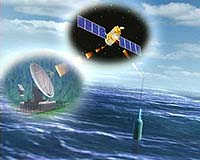| . |  |
. |
Doha (AFP) March 21, 2010 A UN body on Sunday rejected the monitoring of trade in dwindling stocks of precious corals days after nixing a ban on bluefin tuna, raising doubts about its capacity to oversee high-value species. The Conference on International Trade in Endangered Species (CITES), meeting in Doha until Thursday, shot down the proposal despite an 85 percent drop since 1980 in global harvests of red and pink coral, among the most valuable of wildlife commodities. A single necklace can sell for 25,000 dollars (18,000 euros), with a kilo of polished coral costing up to twice that. Environmental groups slammed the decision, warning that the consequences could be severe, perhaps irreversible. As with Atlantic bluefin, Japan led opposition to the measure, which targeted seven species of the deep-water, reef-building organism, one in the Mediterranean and six in waters off Japan and Taiwan. Another 24 "lookalike" species, also in the Coralliidae family, would have been covered to prevent accidental harvesting. "Management is already under strict control," a Japanese delegate said during plenary debate. North African countries with coral cottage industries joined in the "no" vote, arguing that a CITES Appendix II listing -- which mandates export and scientific monitoring -- would damage livelihoods. "It will have serious negative repercussions. Coral generates 5,000 jobs in our country, and 1.4 million dinar (one million dollars, 740,000 euros) every year," said a delegate from Tunisia, calling for a secret vote. The 133 countries that cast ballots were almost evenly split, but the proposal would have needed a two-thirds majority to pass. Co-sponsors the United States and the European Union argued that over-exploitation was responsible for crashed populations, and that only global oversight could prevent the species from slipping past the threshold of viability. Some 30-50 metric tons of pink and red coral are harvested annually from the Mediterranean and Pacific, much of it transformed into jewellery in Italy. "We need to think in terms of the cautionary principle," said Kristian Teleki, a marine biologist at conservation group Sea Web. "The harvesting is happening at such a rate, it is simply not sustainable when you look at the ecology of these organisms." Current practices in the industry could more accurately be described as "coral mining" than fishing, he added. The organisms take 100 years to reach maturity, but newly discovered beds are often exploited beyond the capacity to reproduce within a couple of years. Unable to source enough coral from the Mediterranean, Italian artisans -- centred in Torre del Greco -- today get 70 to 80 percent of their raw material from Taiwan, Japan and other sources in the Pacific, according to a 2004 study. Marine conservation groups reacted strongly to the proposal's rejection. "To say that it is highly disappointing would be an understatement," said Ernie Cooper, a coral expert with the wildlife group TRAFFIC. "The message of this meeting is that it is going to be very difficult to achieve conservation for high-value marine species given the concerted effort to block any attempt to list them on CITES." Last week, CITES rejected a total ban on fishing of Atlantic bluefin tuna from the Mediterranean and the eastern Atlantic. Historically, the UN trade body has dealt more with charismatic fauna such as great apes, big cats and elephants, rather than commercially harvested species worth billions. "The unregulated and virtually unmanaged collection and trade of these 31 species is driving them to extinction. Today's decision sets a terrible precedent," said David Allison of Washington-based Oceana. Three years ago, a nearly identical proposal came before CITES at its last meeting. At that time, the Appendix II listing was initially approved, only to be overturned during the final minutes of the 12-day meeting in a secret ballot.
Share This Article With Planet Earth
Related Links Water News - Science, Technology and Politics
 Southern Ocean Winds Open Window To The Deep Sea
Southern Ocean Winds Open Window To The Deep SeaCanberra, Australia (SPX) Mar 17, 2010 Australian and US scientists have discovered how changes in winds blowing on the Southern Ocean drive variations in the depth of the surface layer of sea water responsible for regulating exchanges of heat and carbon dioxide between the ocean and the atmosphere. The researchers' findings - published on-line in Nature Geoscience - provide new insights into natural processes which have a majo ... read more |
|
| The content herein, unless otherwise known to be public domain, are Copyright 1995-2010 - SpaceDaily. AFP and UPI Wire Stories are copyright Agence France-Presse and United Press International. ESA Portal Reports are copyright European Space Agency. All NASA sourced material is public domain. Additional copyrights may apply in whole or part to other bona fide parties. Advertising does not imply endorsement,agreement or approval of any opinions, statements or information provided by SpaceDaily on any Web page published or hosted by SpaceDaily. Privacy Statement |